
What Is Sharps Waste?
The Occupational Safety and Health Administration (OHSA) defines a “sharp” as any object which can puncture human skin. By definition, sharps include scalpels, needles, and capillary tubes, but any object which can potentially break the skin should be treated as a medical sharp.
Sharps waste is an object which can penetrate the skin and is contaminated by bodily fluids such as blood. Sharps waste may also be referred to as “contaminated sharps.”
- Sharps waste can cause significant injuries and spread bloodborne diseases such as HIV.
- There are over 18 million healthcare workers in the US. Any worker handling medical equipment is at risk of exposure and harm from contaminated sharps.
- If in doubt as to whether an object is contaminated or not, it should be treated as sharp waste.
MedPro Disposal can help prevent sharp injuries by offering safe and effective waste removal services to health settings. Contact us to learn more about sharp waste disposal near you.
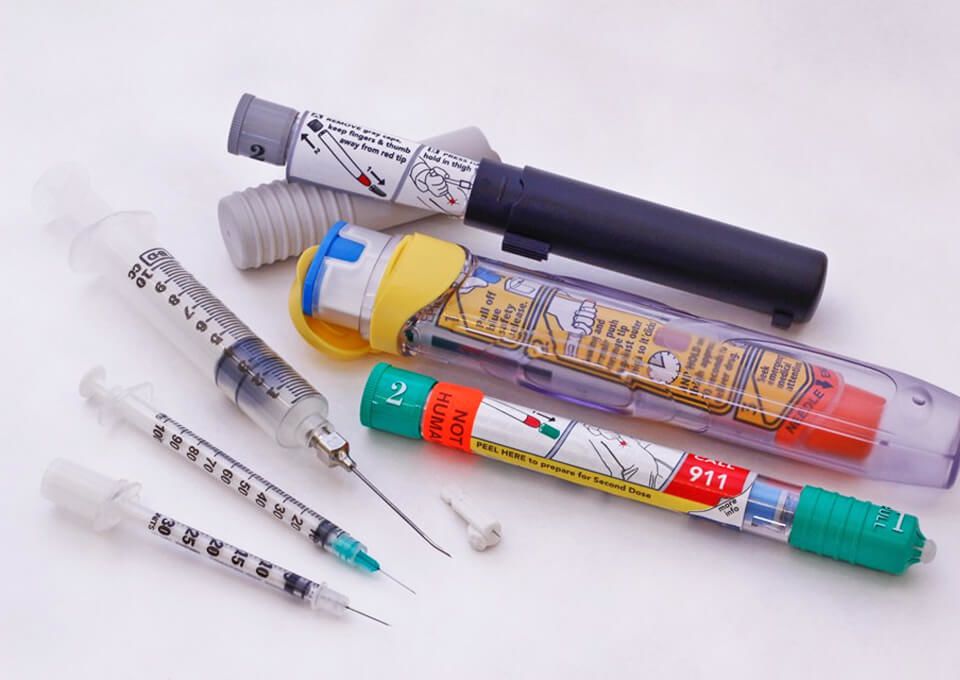
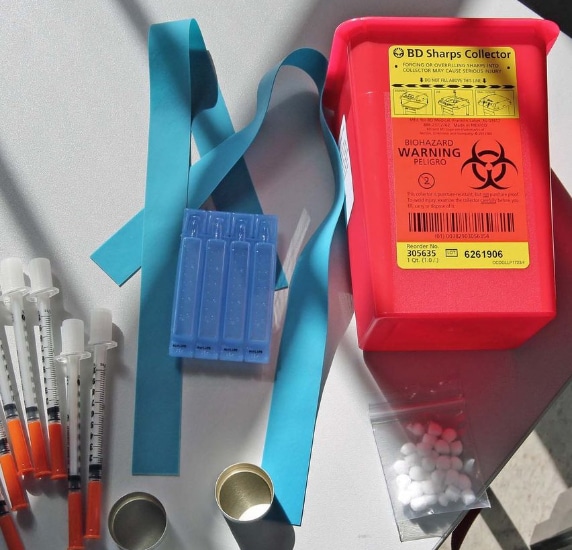
Types of Sharps Disposal Services for Health Care Facilities
Given the prevalence of sharps in medical facilities, it’s crucial for every healthcare worker to know how to handle sharp waste correctly. Sharps disposal companies like MedPro offer a variety of disposal options for home and healthcare waste, including:
- Legally compliant and safe mailback services
- Puncture-resistant sharps containers
- Sharps container disposal services via scheduled pickup
Contact Us for More Information about Sharps Container Disposal or Give us a Call for a Fast Free Quote: 1-888-641-6131.
Effective Sharps Disposal Is a Public Health Concern.
To protect healthcare workers and the public at large, sharps disposal must be safe and effective.
- According to the NIH, waste handlers and support staff are even more likely than healthcare workers to suffer sharps waste injuries.
- Improper sharp waste disposal – such as throwing needles into ordinary bins – can cause needle stick and sharp injuries.
- Contaminated sharps can expose workers to serious pathogens including Hepatitis B, Hepatitis C, and HIV.
- Proper disposal, such as using sharps containers, can reduce the risk of infection and injury.
There are around 385,000 sharps-related injuries a year in health settings, according to the Center for Disease Control and Prevention (CDC). The safe disposal of sharps containers, and properly packaging contaminated sharps, may help to reduce occupational exposure to pathogens.

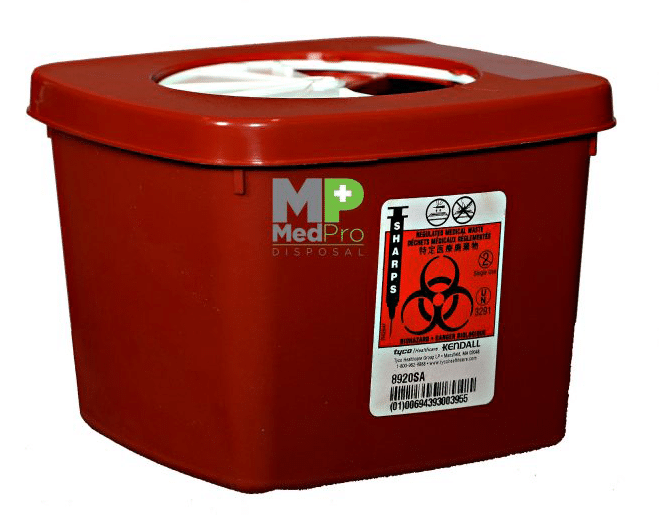
Biohazard Sharps Containers for Health and Home Settings
Biohazard sharps containers are unique in that they’re designed to safely hold needles and other sharp objects.
- Sharps containers should be labeled as biohazard waste
- They come with a spill-proof star shaped opening at the top
- Sharps disposal containers are puncture-proof and shatter-proof for worker safety
The Sharps Disposal Process
Sharps can be disposed of by secure pickup or even through the mail if they’re packaged and labeled properly.
To process the waste, sharps disposal companies sterilize sharps in an autoclave by using high pressure for 15-20 minutes to “deactivate” all bacteria and viruses on any material. Sharps can also be sterilized in health settings so they may be reused, depending on the type of object e.g. a scalpel.
Alternatively, sharps may be sterilized using an incinerator. This involves using high temperatures, in a controlled manner, to burn the waste.
How you choose to dispose of sharps waste depends on many factors including the type of waste you’re dealing with.
Where to Dispose of Sharps Containers
One way to safely perform sharp waste disposal is to use specially designed sharps containers. You can then ship these containers through the mail via special mailback services, or you can arrange for a sharps disposal company to collect the waste.
Some facilities can perform on-site sharps disposal, but this requires specialized equipment.
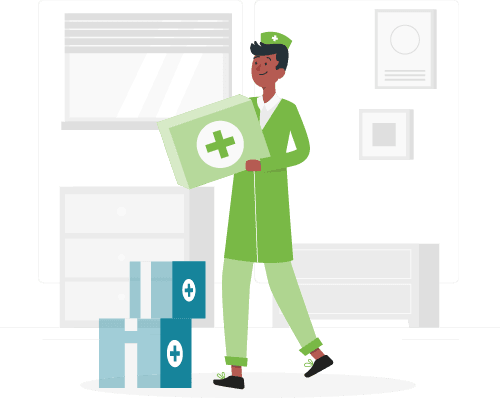
Here are some examples of sharps requiring
special disposal in a sharps container:
- Needles. Hollow needles used for injecting medications.
- Syringes. The “plunger” body that is used to inject drugs. They may have a needle attached.
- Lancets. AKA “fingerstick” devices. These short, double-edged blades are used to get blood drops for testing. (Think, “diabetes blood test prick.”)
- Infusion Sets. Tubing/needle systems used to deliver medications beneath the skin.
- Epi Pens. Auto injectors pre-filled with epinephrine in case of anaphylactic shock.
- Insulin Pens. Auto-injectors pre-filled with insulin for diabetics.
- Connection Needles / Connection Sets. Needles that connect to tubes. Mainly used for home hemodialysis patients.
- Scalpels and other blades.
- Scissors used to cut flesh or dressings.
- Glass. Even unbroken glass that hasn’t necessarily been contaminated may still need sharps disposal.
- Sharp Plastic may need special disposal.
Looking for disposal of sharps containers? Contact MedPro Disposal for a quote for sharps removal.
Steps Required for Safe Sharp Container Disposal:
- Proper puncture-proof container
- Care from the medical community
- Proper training for dealing with sharps waste elimination
- A licensed medical waste disposal company for container removal
To reduce the risk of injury, the FDA recommends healthcare facilities and other waste generators follow a two-step process for proper medical sharps waste disposal:
1) Place all needles and sharps in a verified sharps disposal container immediately after use.
2) Overfilling containers increases risk of injury, so when 3/4 full, follow community guidelines on getting rid of the sharps container.
3) Storage requirements and community guidelines vary by location. Please check your state page for a full list of regulatory requirements.
By following medical sharps disposal regulations, you can keep your business compliant and avoid unnecessary fees, reduce pollution to the environment, prevent injury, and prevent the spread of disease. Contact MedPro Disposal, a sharps disposal company, for help with removing hazardous waste from your facility.

Sharps Disposal
Best Practices
The NIH lists several principles for the safe
disposal of sharps.
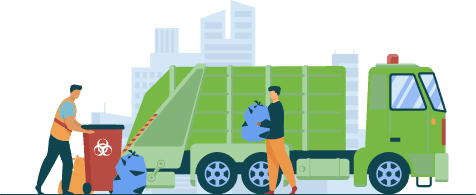
Sharps Disposal and Handling for Healthcare Workers
Healthcare staff should follow best practices for safe sharps handling and disposal. Important rules include handling sharps as little as possible, then immediately discarding them in a puncture-resistant, sealed container.
Sharps containers themselves are covered by several safe handling standards. Containers should be filled only to the “fill line,” closed between uses, and kept out of reach of the public.
Safe Handling:
- Sharps should not be passed from hand to hand.
- Used needles must not be broken or bent before disposal.
- Used sharps must immediately be discarded in a sharps container.
Sharps Containers:
- Must be located to avoid spillage.
- Must be kept at a height that allows safe sharps disposal.
- Must be kept away from public access.
- Must not be overfilled.
- Must be disposed of once full.
- Should be closed between uses.
- Must not be used for purposes other than sharps disposal.
- Should be disposed of after 3 months even when not full.
Sharps Waste Disposal Containers from MedPro Disposal
If you’re looking for sharps disposal, you may have questions regarding what containers to buy. For example, what are the different containers for sharps disposal? How many are there? What are the colors?
MedPro provides red sharps disposal containers that come in several handy sizes. Each leakproof, puncture-resistant container comes with a prepaid mail-back shipping box, reducing waste disposal costs as much as 50%.
- 1.2 Gallon Sharps Disposal System
- 2 Gallon Sharps Disposal System
- 3 Gallon Sharps Disposal System
- 5 Gallon Sharps Disposal System
- 8 Gallon Sharps Disposal System
- 18 Gallon Sharps Disposal System
- 28 Gallon Sharps Disposal System

Sharps Disposal FAQs
Why is sharps disposal important?
Sharps disposal matters because it can prevent occupational exposure to serious – and fatal – bloodborne pathogens. It can reduce the risk of injury and help to control the spread of infections within a community.
Where do sharps containers go?
Sharps containers travel with their sharps to the treatment facility and undergo the same treatment process as the sharps.
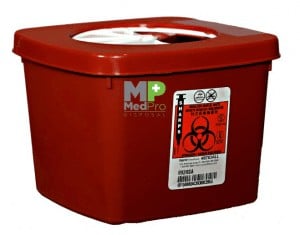
How is sharps waste disposed of?
Sharps waste is typically treated via autoclave technology. This involves the use of high pressure and steam to sterilize materials of any harmful bacteria and viruses. Incineration is also another method, although it’s not very environmentally friendly. Incineration is typically used for sharps chemotherapy waste.
Whose responsibility is it to dispose of sharps?
It’s the responsibility of a licensed medical waste disposal company to dispose of sharps properly. You should never throw your sharps and their containers in with the regular trash. Place your sharps in the container until it’s 3/4 full and then your medical waste disposal company will pick it up with the rest of your medical waste.
What happens if sharps waste is not disposed of properly?
Healthcare and support workers are put at risk, and the public is also at an increased risk of injury or contracting a serious disease.
How long can you keep a sharps container?
The sharps container can be kept until it’s 3/4 full. Some containers will automatically shut when the threshold is reached. It’s then the facility’s responsibility to buy a new sharps container.
Where can you obtain
a sharps container?
To obtain a sharps container, there are a couple of options you should consider. The first option is to buy a container through a medical waste disposal company. You can get a sharps container through medical waste disposal companies by calling them or ordering the box online.
Ordering a box through a medical waste company will eliminate the need for traveling to obtain this box. Also, when choosing to get a sharps container box from a medical waste disposal company, it will ensure that your container will be disposed of properly.

Another option to get a sharps container is to buy one at your local pharmacy or healthcare equipment store. This is not always an option, as it can be difficult to find a store carrying sharps containers for people within rural areas. When you buy a sharp container on your own, you will have to worry about the proper disposal of the box once it has been filled.
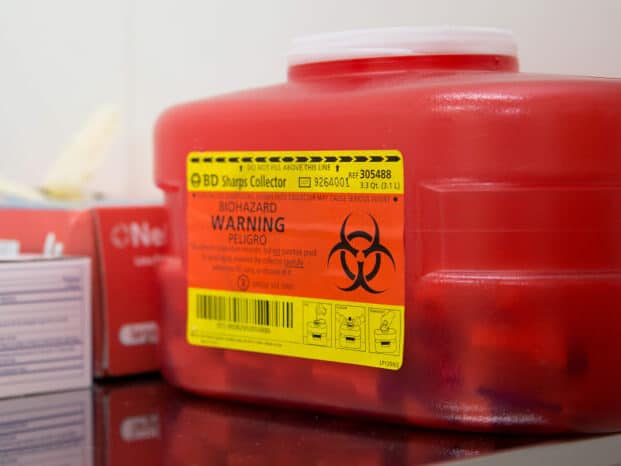
Mailback Options for Healthcare Facilities
For healthcare facilities looking for a simple, compliant, and cost-effective sharps removal service, contact us today. With MedPro, we’ll create a customized and flexible service schedule and provide you with puncture-proof containers to simply seal and schedule for pick-up when full. For smaller generators of waste, MedPro also offers a sharps mail-back service.
The Do’s and Dont’s of Sharps Containers
The Food and Drug Administration has a page dedicated to the do’s and
don’ts of sharps containers. Some of their do’s and don’ts include:
- Do place used sharps in the proper sharps containers immediately after use
- Do keep all sharps and their containers out of reach of children and pets
- Do use a sharps container that’s FDA approved
- Don’t throw sharps in with the regular trash
- Don’t flush sharps or needles down the toilet or drain
- Don’t recycle your sharps
How to Handle Needlestick or Sharp Injuries
A needle stick from a sharp can let a bloodborne pathogen in under your body’s defenses.
That said, sticks don’t always mean infection. There’s a plan to fall back on if you’re injured by a sharp.
If you get a cut from a sharp, the CDC advises taking the following steps without delay:
1) Wash the cut/needlestick with soap and water.
2) Flush any splashes to your skin, mouth, or nose with water.
3) Irrigate eye contamination with saline, sterile irrigants, or clean water.
4) Report the injury to a supervisor.
5) Seek immediate medical treatment.
What to Ask Your Sharps Disposal Company
All sharps disposal companies are not created equal. Some carry different levels of insurance to protect their customers. Some hold their customers liable even while the waste is in transit. Certain companies levy much higher fees and charges for disposal.
Some companies, meanwhile, offer waste disposal for as much as 50% less cost, with as much as $15 million in insurance to protect their clients.
- Who’s liable for your medical waste? With some sharps disposal firms, you remain liable for your waste until it’s neutralized. With MedPro, you’re safe as soon as the waste leaves your facility.
- How much insurance do they carry? Does your firm have enough insurance to protect you in the event of a catastrophe? MedPro carries $15 million in insurance.
- How much experience does the company have? It’s as true in any business as it is in sharps disposal: experience matters. A smooth system of routes, processes, compliance, and affiliates doesn’t sprout up overnight.
- Are they transparent and accessible? There’s no one-size-fits-all solution to medical waste disposal. Your sharps needs may be light or heavy, and your area may have very different EPA regulations than those a few miles distant. Pick a partner who will talk to you and work with you.
- What are the fees? Find out what you’re paying, and what you’re paying for, up front. Waste companies can have very different fee schedules when it comes to sharps disposal.
- Will they train your staff? Proper disposal of sharps starts with your own staff. Sharps must be packaged and shipped according to regulations. Some companies provide this training.
- Are they compliant at every level? Sharps regulations vary by state, and even national disposal regulations can change. Choose a partner that’s always 100% compliant, up to date, and most of all, insured.
Sharp Waste Disposal Violations
A sharps violation can cost even a small practice $70,000 or more. Fines can come from OSHA, the EPA, or other national or local government bodies. Almost all sharps violations are avoidable. All it takes is a little knowledge.
Here are some of the most common sharps disposal violations.
- Disposing of sharps in non-compliant containers. Non-compliant containers include milk containers, water bottles, glass containers, or soda cans. All of these can puncture easily or break.
- Placing sharps in the regular trash. This practice exposes employees and members of the public to needle sticks. It also introduces biohazards into landfills.
- Bending or breaking needles before discarding. This is a habit thought by some to reduce the risk of needle sticks. In fact it’s been found to elevate the risk.
- Improperly sealing sharps containers. Sharps containers must be sealed to prevent spillage, and to prevent sharps being squeezed out under pressure.
- Incorrectly labeling containers. Sharps must be clearly labeled as biohazardous sharps in bright red, puncture proof containers.
- Putting sharps in the wrong container. Sharps should never be disposed

Sharps Waste Disposal From MedPro Disposal
Looking for local sharps disposal? MedPro Disposal offers cost-effective, reliable medical waste disposal, including sharps disposal. In 48 states, small and large medical waste generators alike are never far from convenient disposal of sharps and other biohazard waste. With more than 80 regional affiliate haulers, quick, reliable, cost-effective disposal is always right nearby.
Get More Information About Sharps Disposal
Do you still have questions about sharps disposal?
MedPro has several informative blog posts about sharps.
Looking for sharps containers? Wondering what you can put in sharps containers and what you can’t?
Trying to figure out what to do with sharps from your home? MedPro’s blog contains a wealth of disposal information.
Here’s a sampling of titles:
- Where Do I Get Sharps Containers?
- When Should I Dispose of my Sharps Containers?
- What Should I do with Used Needles?
- How Do You Dispose of Sharps Containers from Home?
- 5 Things to Consider Before Purchasing Sharps Containers
- What Can You Put in a Sharps Container?
For the full list of MedPro’s Medical Waste articles, click here.
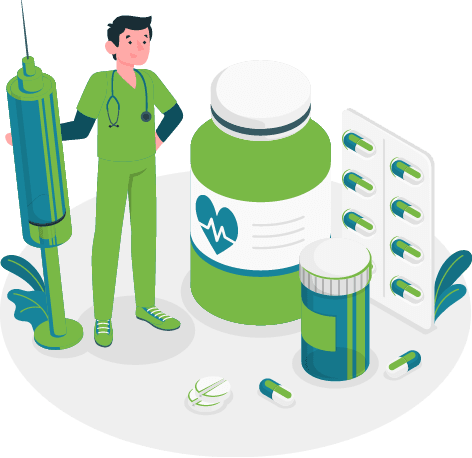
Sharps Disposal Services From MedPro Disposal
Sharps disposal is one of the most important duties of any healthcare worker. Proper disposal keeps us safe from bloodborne pathogens. Improper disposal opens us up to infection and hefty fines.
The key to staying safe from needle sticks and cuts is knowing what sharps are, and how to dispose of them. A reliable disposal company can carry the lion’s share of the sharps disposal burden.
A good partner can provide the sharps containers and systems that can keep your employees safe, and the training to ensure their proper use. A reliable waste disposal company like MedPro can do it all with $15 million in insurance, up to 50% less cost than other options.


